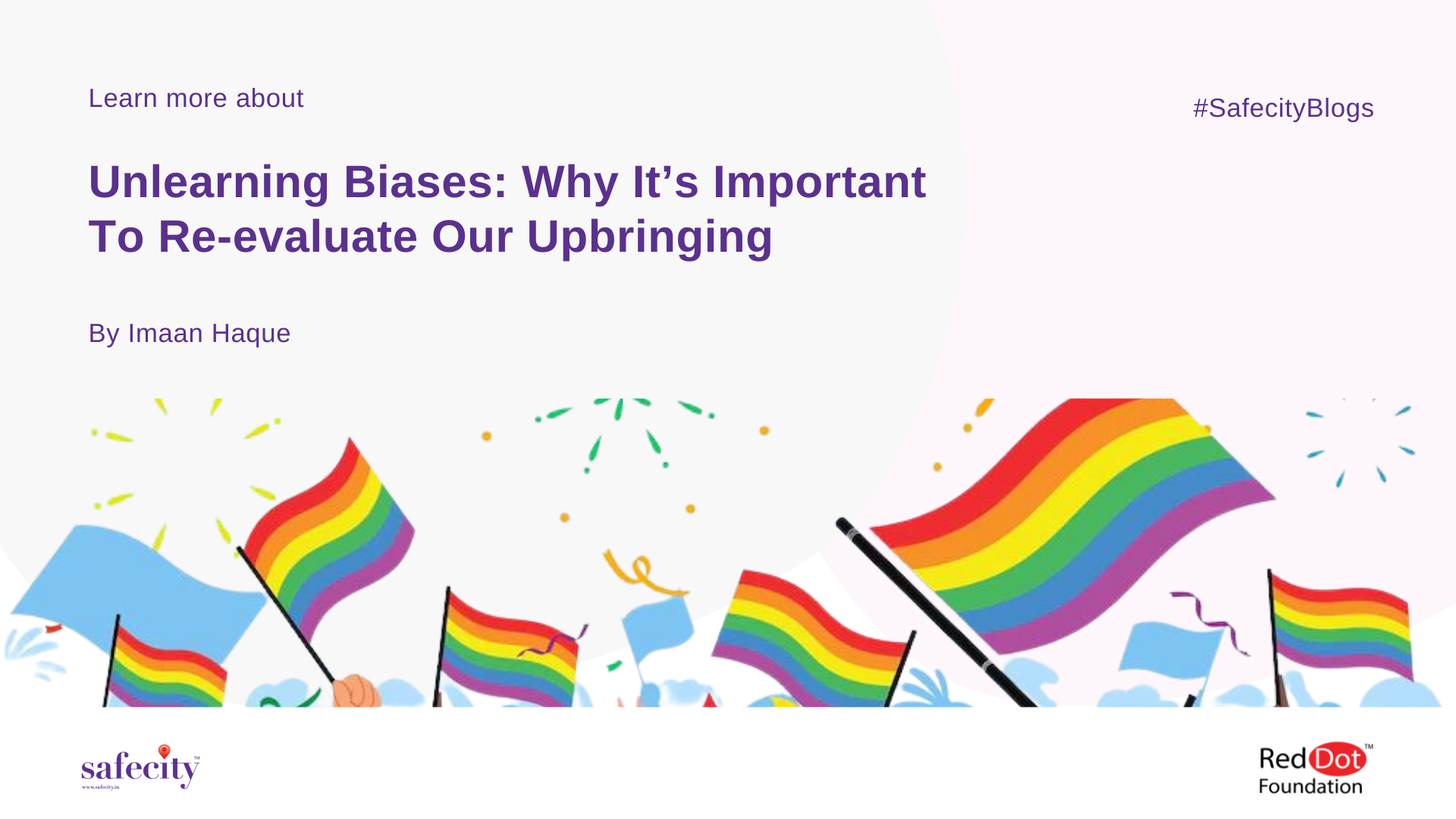Unlearning Biases: Why It’s Important To Re-evaluate Our Upbringing

By Imaan Haque
Growing up in a conservative Muslim family, I was always told that queerness is something exceptionally sinful. There was no space to even talk about homosexuality, or anything even remotely related to it. Naturally, as a child, I adopted many of these beliefs. For too long, I would use ‘gay’ as a derogatory term, use homophobic and transphobic slurs, make fun of any men or women who did not conform to heterosexual stereotypes and avert my gaze in shock when I came across transgender persons. Unlearning these concepts and rectifying what my parents had drilled into my brain from a young age took a long time – even more so for someone who never had to struggle with their gender identity or sexuality. However, the more I learnt about queer folx, the more I realised that we’re still deeply entrenched in these archaic beliefs as a society.
Not too long ago, I came across a post on Facebook which read, “Not all people who menstruate are women.” The friend who had shared this post added the tagline, “What does it even mean? LOL.” Expecting to find comments educating them on the topic, I instead found replies consisting of laughing emojis and people making fun of posts ‘advertising liberal hogwash’. This may seem like an innocuous mistake, but in actuality, it hints at a larger problem. Misinformation and lack of knowledge the about LGBTQIA+ community as a whole is something that forms the foundation for biases and bigotry. A very significant way of erasure of identity is by restricting information and prohibiting education about gender and sexuality. This further isolates and alienates young people who may be struggling with their sexuality and are already feeling ostracised in their personal lives.
While homosexuality may have been decriminalised in India, the attitudes pertaining to it still range from negative to excessively hostile. 52% of gay men in India who are deprived of peer support face violence and abuse. Most of the young individuals who choose to come out to their parents and families face domestic abuse and pressure to ‘change’ their sexuality – another stigma that comes from a place of bigotry and misinformation. Addressing homophobia and transphobia in India has to start at an elementary level – educating children in schools, conducting workshops for parents and circulating information about the queer community. This can help in resolving some of the biases that we grow up with and later, perpetuate. Being brought up with prejudiced beliefs is out of our hands, but recognising these prejudices and unlearning them is one of the building blocks towards becoming a more empathetic ally.
